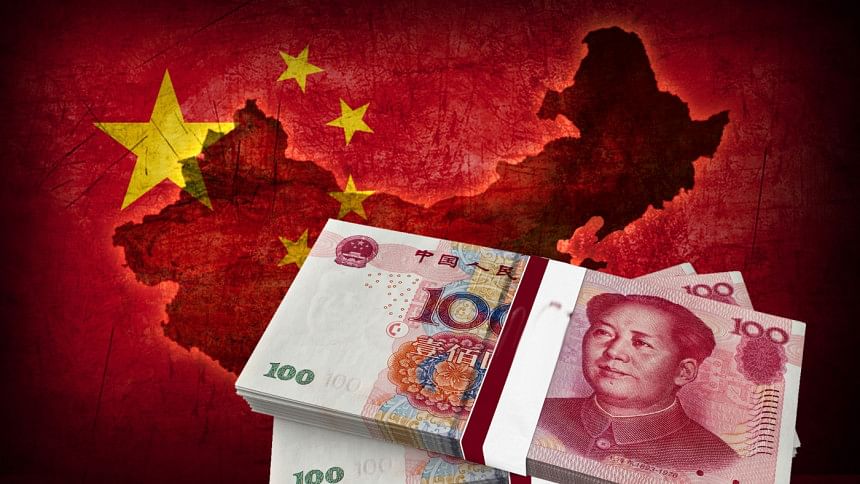China: On the way to recovery

The proverbial strength of the Chinese economy, which grew at a steady 11+percent per annum over the last 30 years or so, had dipped in the last two and half years. By last count, it was just over 6 percent, apparently sending a signal to the world that the honeymoon is truly over. The decline in China's economy seemed inevitable. China, however, has been insisting that super speed growth was not sustainable and it was necessary for the growth rate to slow down for long term benefits.
In 2015, vast sums of money flowed out of China; about US $1 trillion migrated out of China to other destinations in the world, especially to the USA. The main reason was deep scepticism about China's ability to fix its problems. Everyone speculated that China would not be able to regain its place as a driver of the world's economy. However, in the last five months, there has been growing evidence that the Chinese economy has reversed. The flow of China's currency out of the country has stopped, and its foreign exchange reserves have begun to grow once again, albeit at a slow rate, since March this year.
The reasons behind the reversal are slowly becoming clear. First of all, the growing weakness of the American dollar against every world currency, including the Chinese currency, could be a driving factor behind this recovery. The other critical factor is China's efforts to keep the Chinese currency within its own borders. It has purposefully moved to take steps to help economic growth as well as to support its own currency. Only last month, i.e. in March, China's foreign exchange reserves climbed to more than US$10 billion. This was a definitive change from when China lost more than tens of billions of dollars each month as the money migrated out of the country. But with the negative outflow from China, its foreign exchange rose to US$3.21 trillion.
Two more things are going in favour of China's currency. In October 2016, the Renminbi will join other world currencies to form the new international reserve, which will be monitored by the International Monetary Fund (IMF). Moreover, China has decided to not allow the Renminbi to be used as a pawn in the forthcoming US presidential elections. Hence, Chinese traders and economists can ensure that a further fall in Chinese foreign exchange reserves will not be exploited as an American election issue.
But the risk in Chinese currency devaluing again is still there. If perchance the US dollar revives before the US Presidential elections, speculators might shift to US dollars instead of focussing on the Chinese currency. This could upset China's plans surrounding its currency. Thus, China is keen to make sure that the US currency has little chance of taking advantage of a weakening Renminbi. No effort will be spared, as is understood, to see that the Chinese currency is not further weakened. It is interesting to observe how the world seems to gravitate around the two major economies, and how the politics and economies of these two countries can determine the fate of other world economies.
Be that as it may, the Chinese economy seems to be restructuring at a steady pace. Redundant and unproductive factories are being pruned out, and then revitalised to produce new products that have a global demand. Restructuring, rejuvenating and reconstructing failing and obsolete industries and trade is a whole new ball game. China also needs to economise and modernise so that production and manufacturing can be cheaper and more user-friendly. How China re-invents and recovers its economy is a whole new subject that calls for new ideas and new configurations.
We, in Bangladesh, should keenly follow the steps China follows to solve this issue. We should learn how to adapt to changes and rejuvenate our economy, and identify what we can be given up as loss making ventures and what can be recovered for long term profits.
The writer is a former ambassador and columnist. E-mail: [email protected]

 For all latest news, follow The Daily Star's Google News channel.
For all latest news, follow The Daily Star's Google News channel. 



Comments